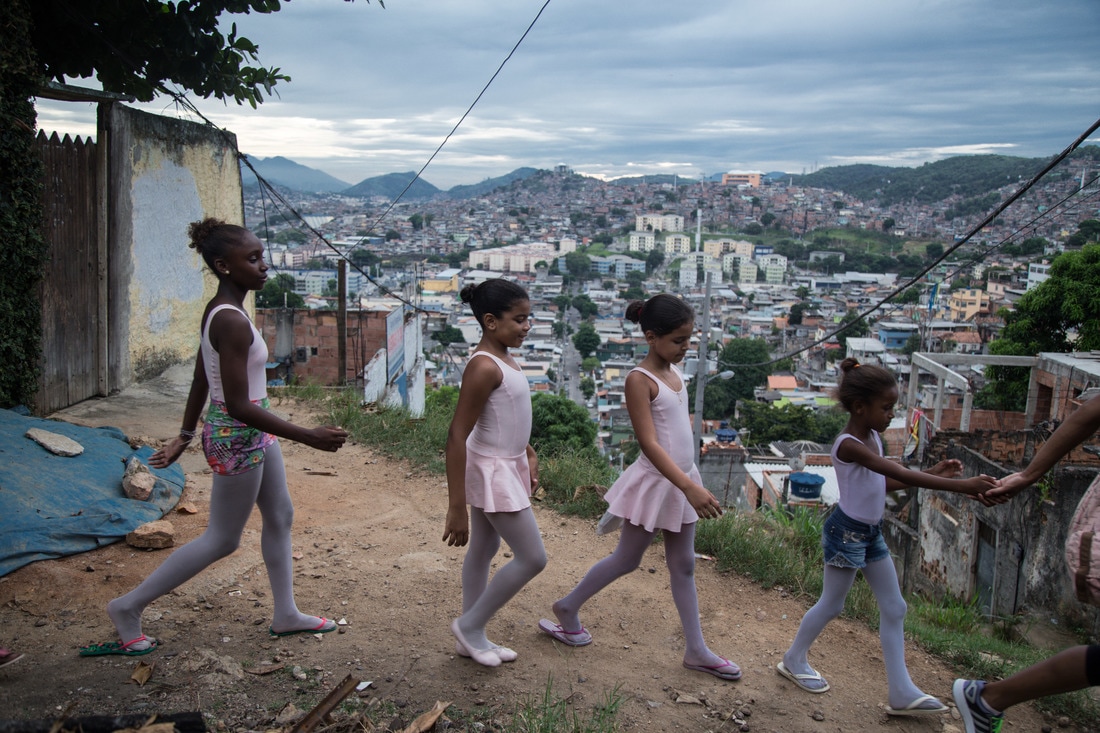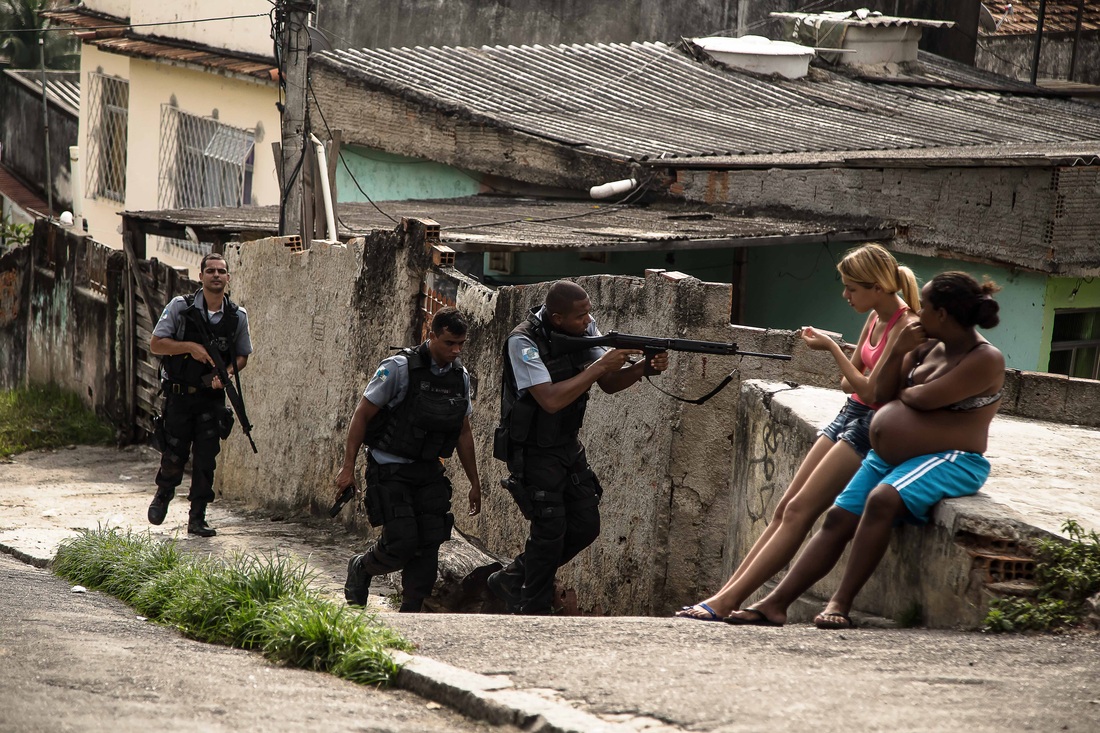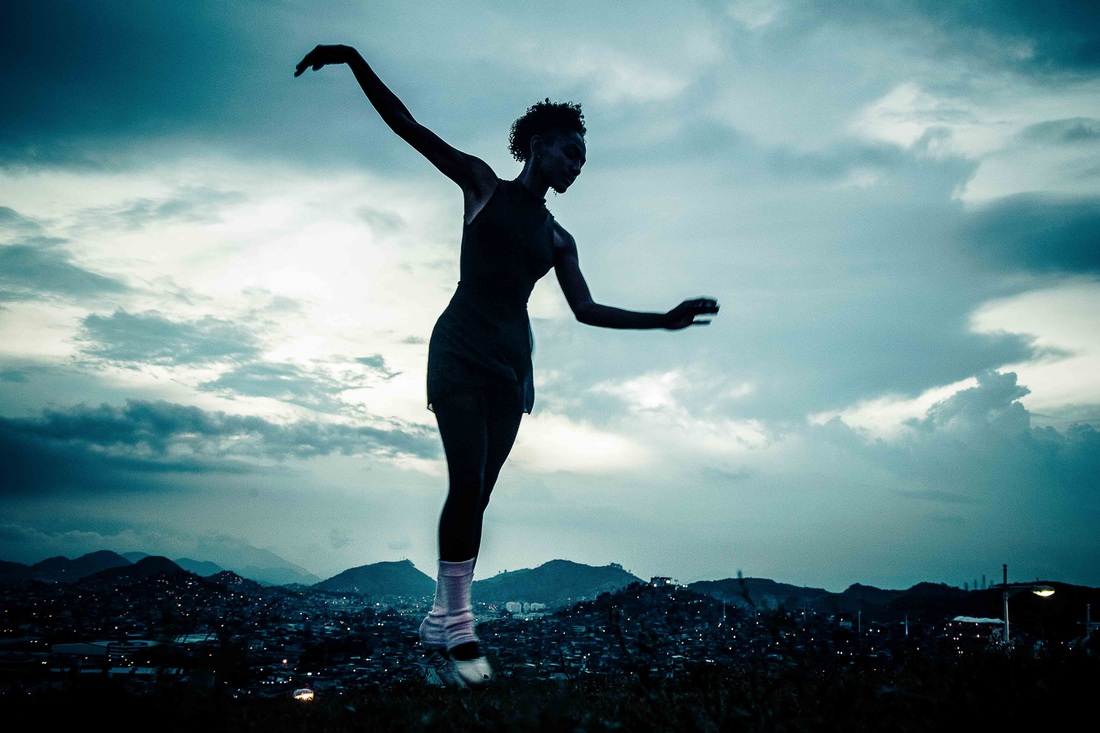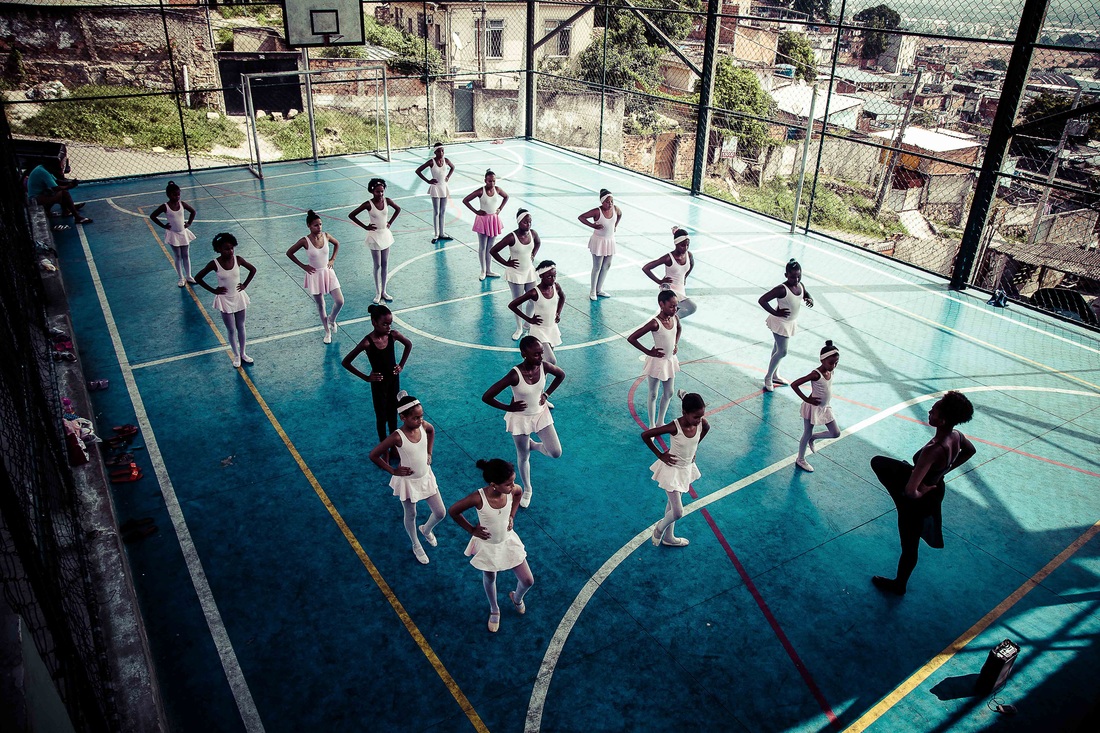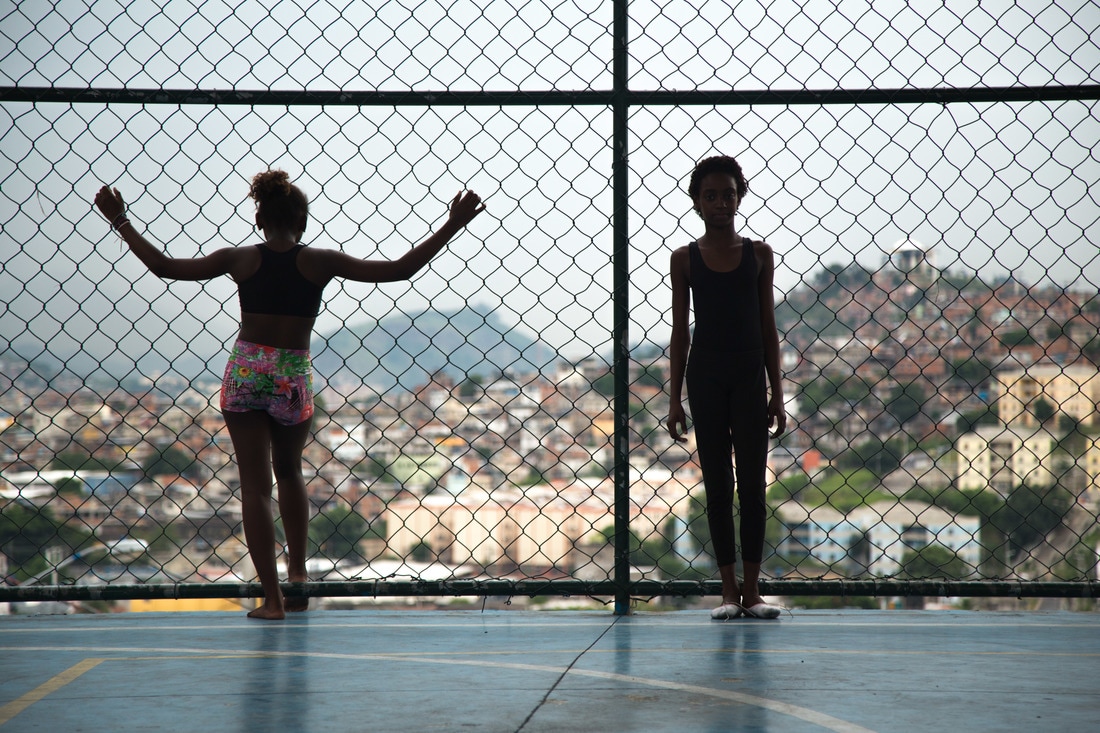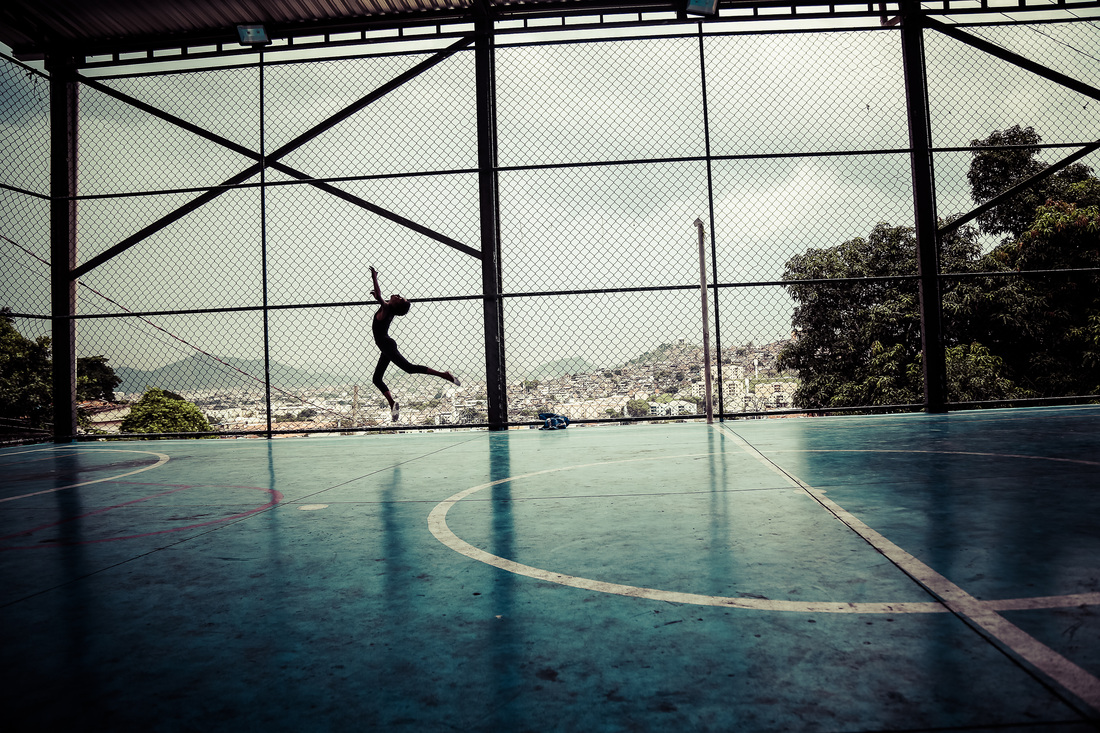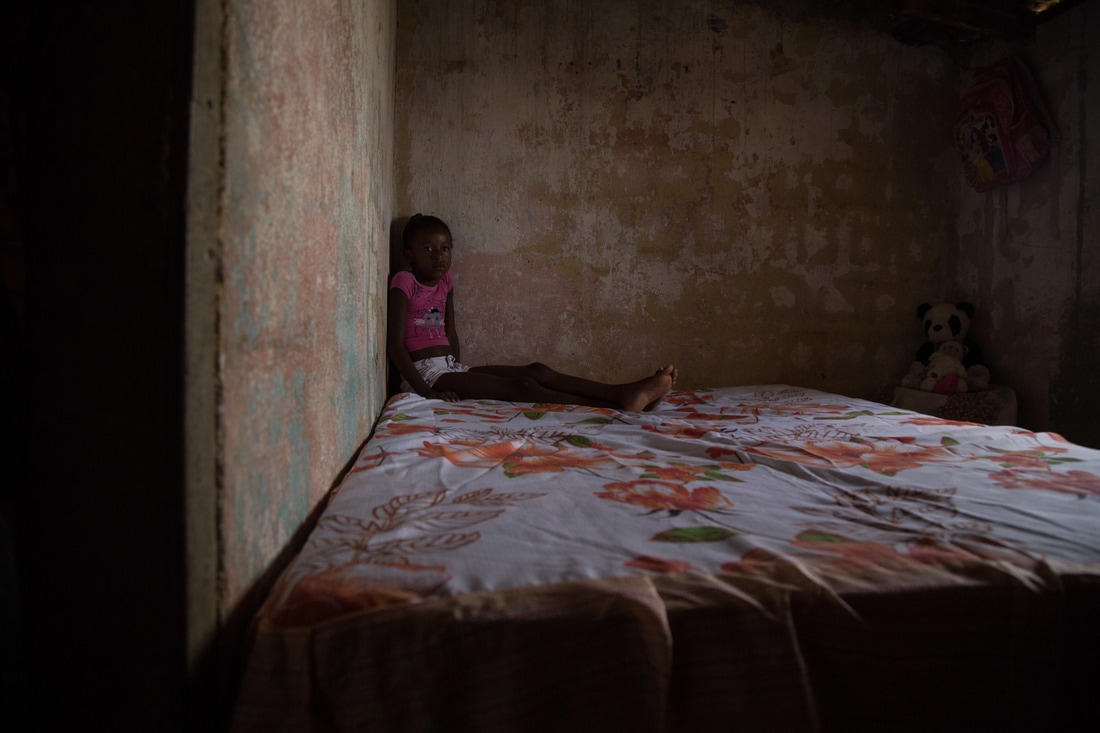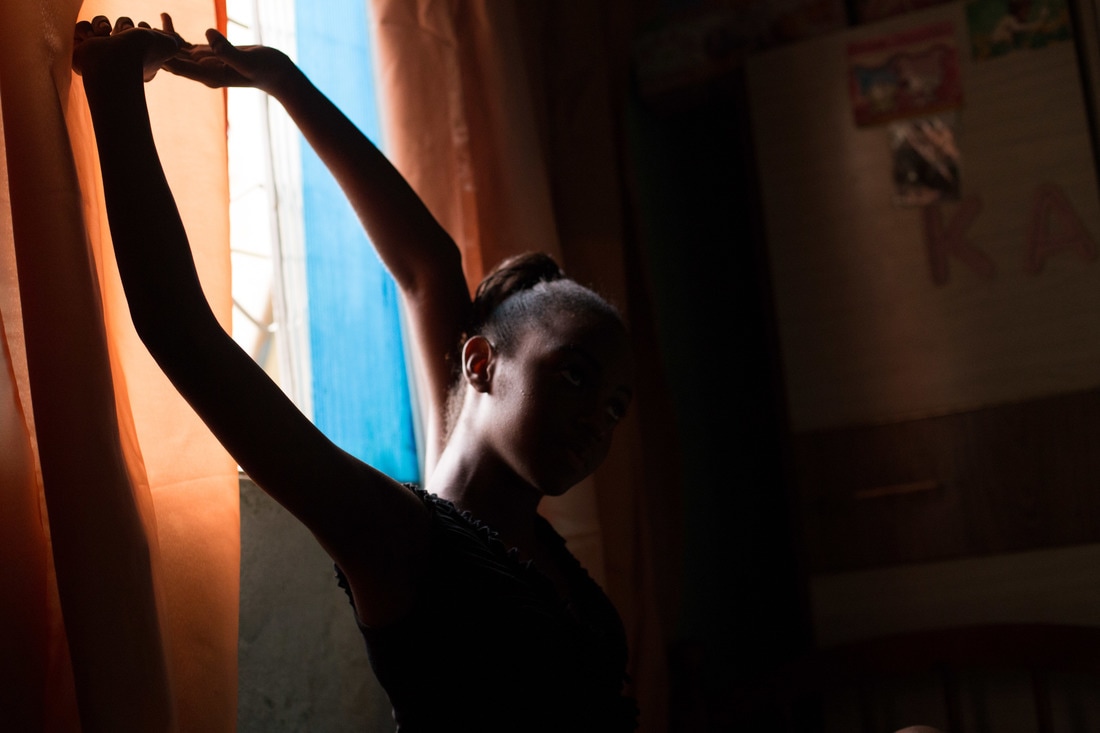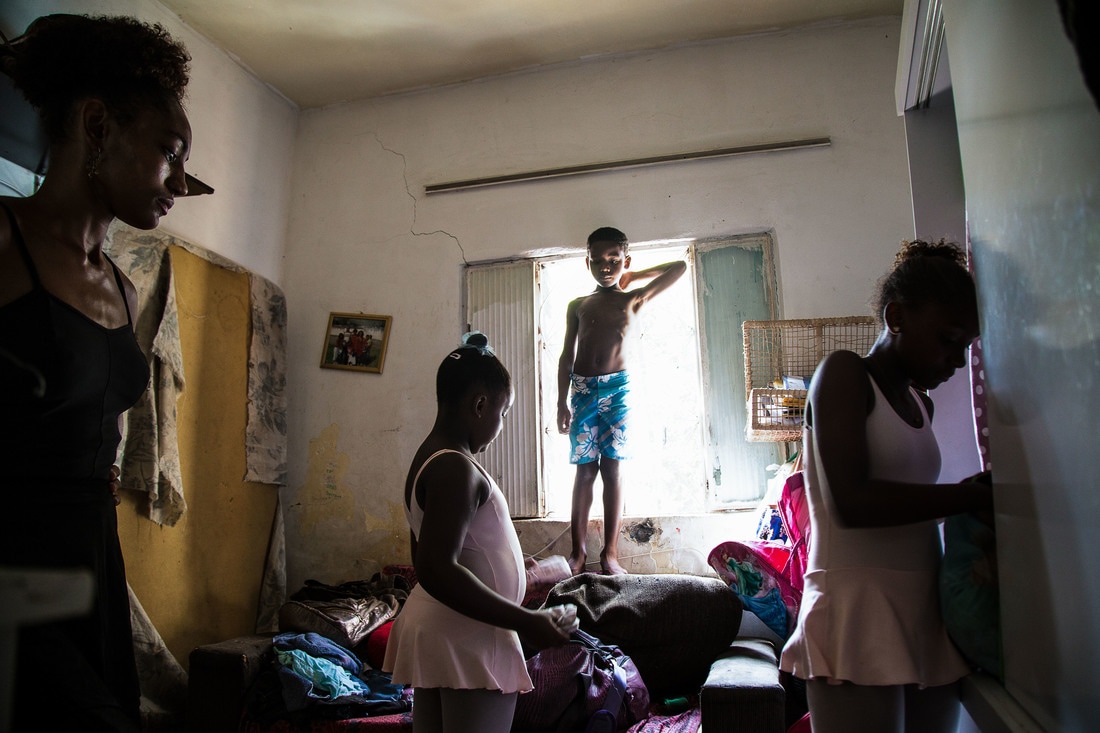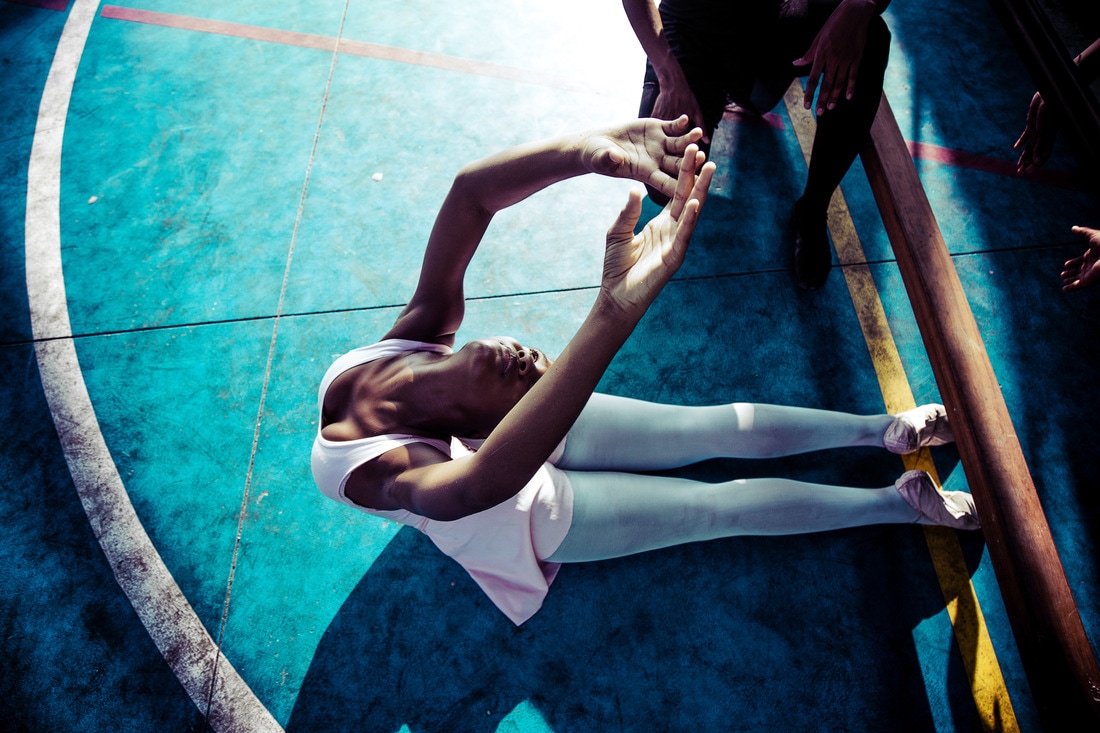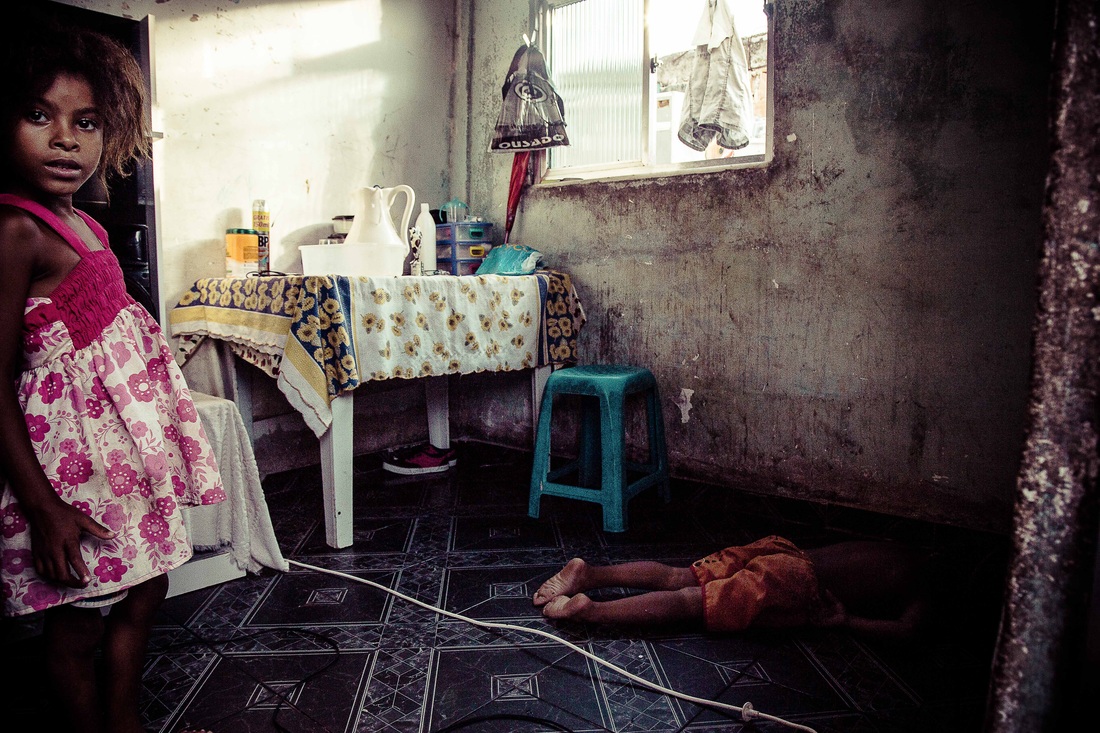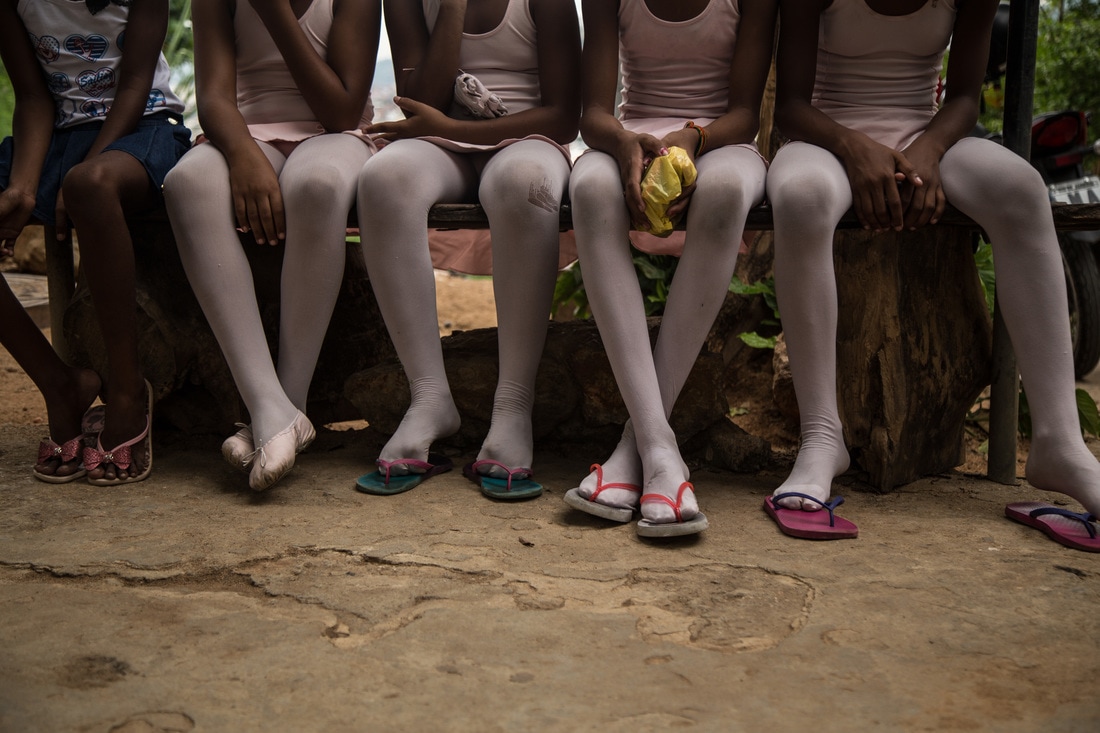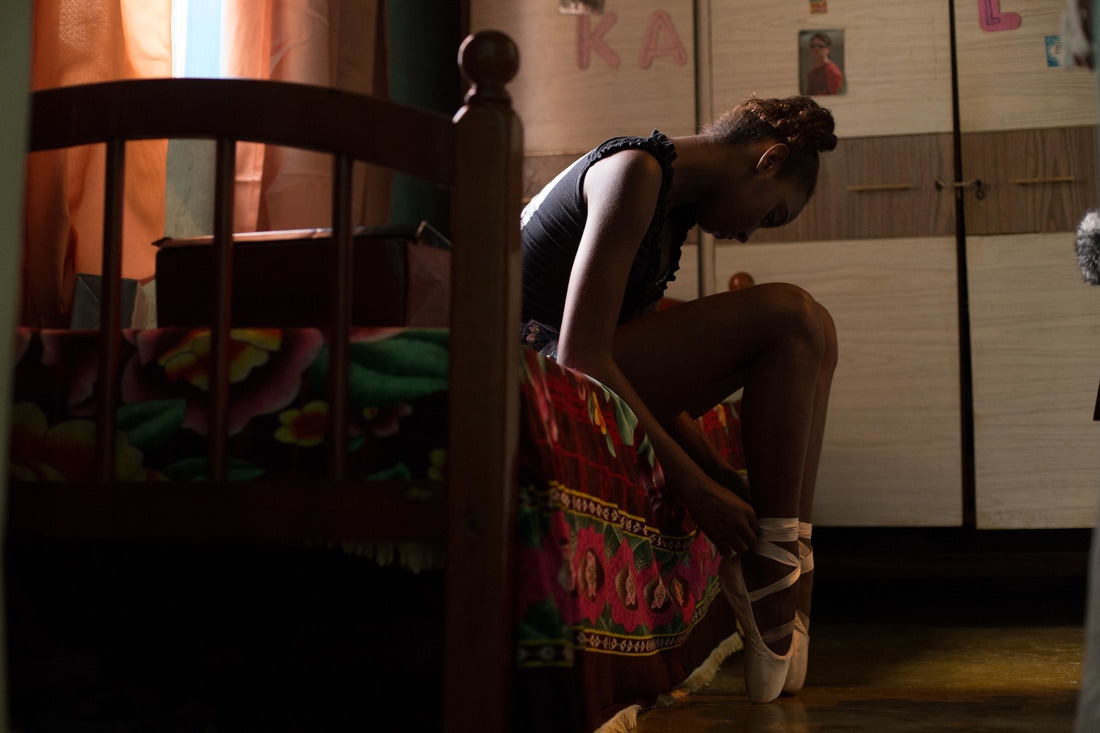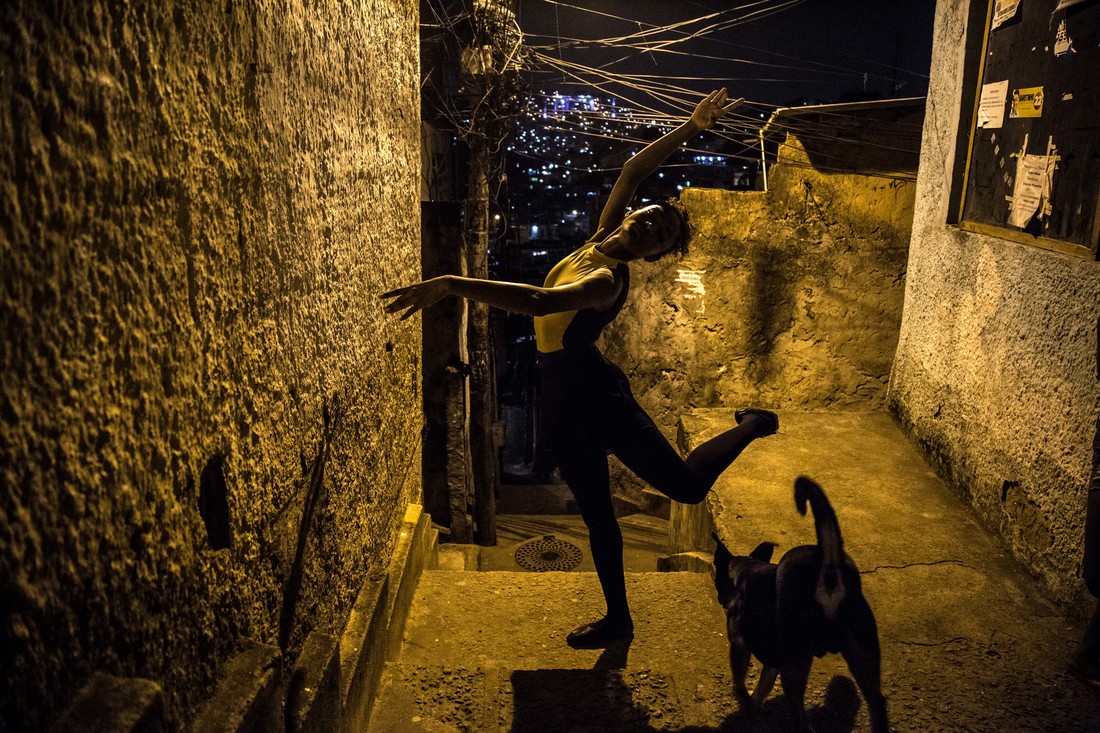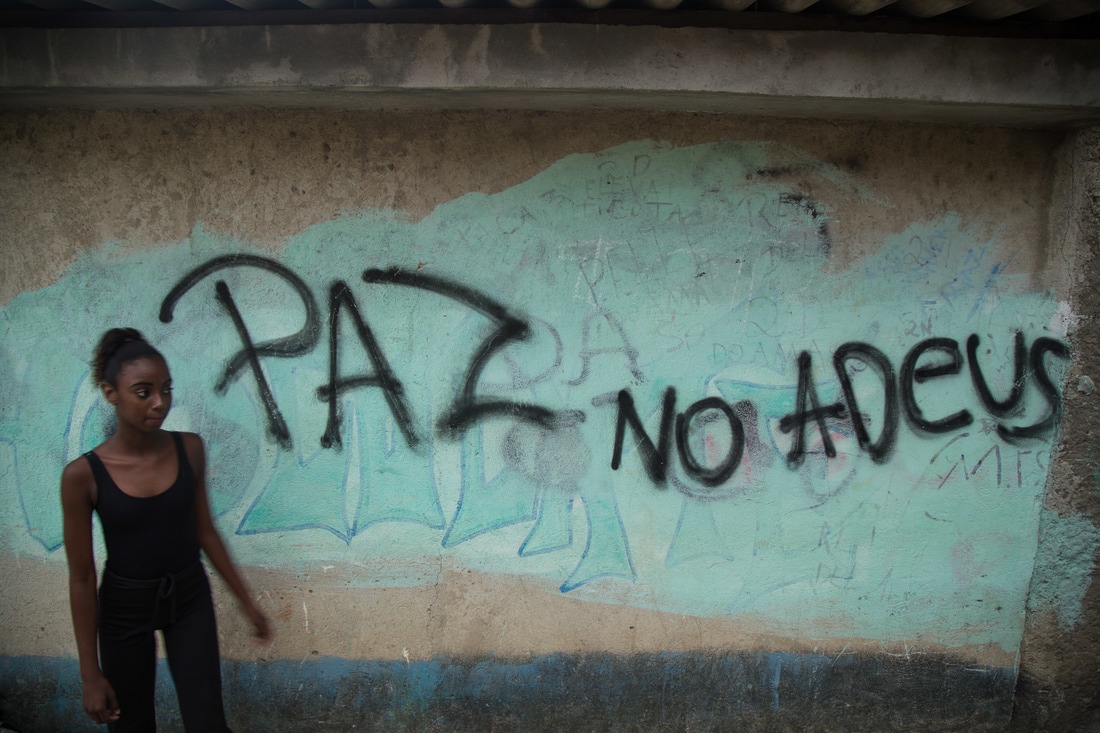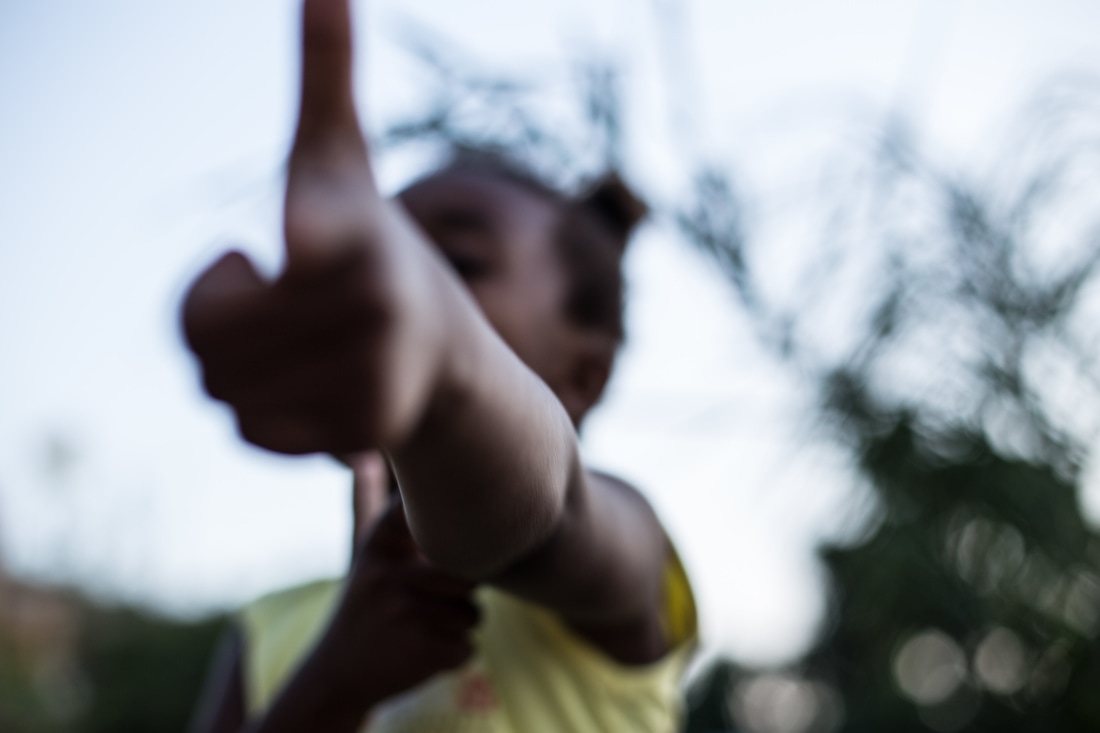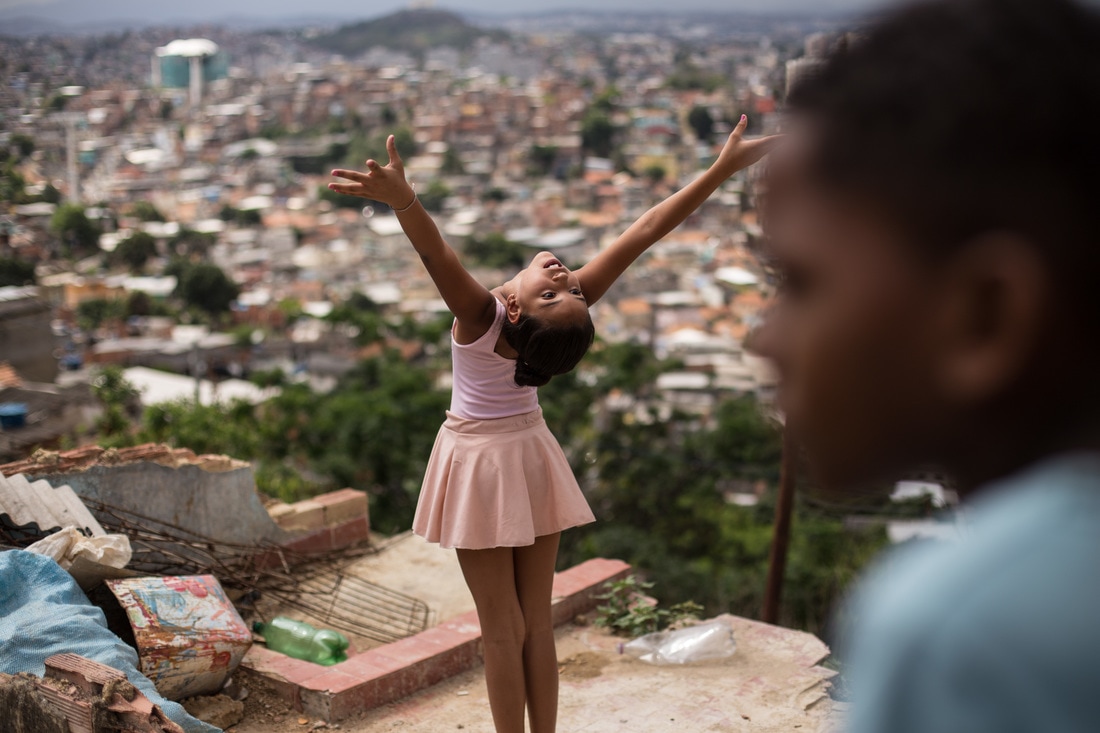On Tip Toe for Life
Brazil is going through a very complex time, involved in a great crisis at the institutional, political, social and economic levels. This context has increased violence and drug trafficking in the favelas, with less police presence and battles between narco groups to take power. This is the case of the Morro do Adeus, located in Complexo do Alemão, in which the Comando Vermelho (VC) is at war against the Third Commando Pure (TCP), making it one of the most dangerous and violent neighborhoods in Rio de Janeiro .
“Na Ponta dos Pés” (On Tiptoe) is a ballet social project for girls aged 4-15, started, without any help or support, by Tuany Nascimento, a 22-year-old dancer, who represented Brazil at international events during a flourishing career that was abruptly cut short by lack of resources. But rather than letting her head drop, the setback strengthened Tuany’s determination to help troubled communities through dance. In 2012, with 17 years old, she started teaching classes in Morro do Adeus, determined to give similar opportunities to children in her community, were she grow up and lives.
Many students in her group of girls come from families caught up in narco turf wars and afflicted by the chronic crisis of opportunity that personifies urban poverty across Brazil. “People get into crime because they don’t have opportunities, but the ballet project gives them a chance not to fall into the wrong kind of life.”, said Tuany. Carla, for example, a 12-year-old student of the project, has 2 brother traffickers killed, and the remaining brother male prisoner. Ballet has changed her life for her family, her and her younger sister who also participates, and has generated in the parents the feeling that a better life is possible for their daughters.
One of more than a dozen favelas form the Alemão complex – a huge network of neighborhoods clustered on rolling hills in northern Rio with a population thought to be anywhere between 80,000 and 120,000. Morro do Adeus owes its name to the fact that in the past the sea reached these lands and Morro was the highest point where women went up to bid farewell to their husbands and sailors lovers.
Nascimento grew up in a parallel state-within-a-state: like many other favelas around the city, Alemão was effectively ruled by narco traffickers in the absence of government authority. Basic food supplies, medical services and even burials were paid for by gang leaders who maintained a precarious peace. In November 2010, armored vehicles rumbled along the streets and heavily armed police units reestablished control over the slum. A year later, a special Police Pacification Unit (UPP) took over – part of a controversial state initiative to reduce cartel power and violence in the favelas. “The word ‘pacification’ comes from ‘peace,’ but the majority of ‘pacified’ areas still have war,” lamented Nascimento, who would like to see authorities providing more social and cultural activities. And the arrival of state forces has not brought peace to Alemão. On more than one occasion, Nascimento’s students have have been forced to scurry for cover when violence breaks out.
Tuany lives with her mother, stepfather and five younger siblings in a small house at the top of Adeus hill. She shares the room with her five brothers and sisters in two single beds. Habituated to share a single bed with 3 people, at its first international competition of artistic gymnastics in Switzerland, she could not sleep alone in the double bed in hotel, because it was too big, she needed to use pillow to simulated the presence of her brothers.
The project struggles along despite challenges such as lack of a proper space and almost no funding. A spurt of media attention in 2013 drew a donation of 5,000 reais (about 1000 euros), but that money has been swallowed up by the local residents’ association.
“I am not doing it to make money or for any benefit to me, the project is for the girls to grow as good citizens and good people”. “We’ve had to cancel the class sometimes because of shootings, unfortunately there is no protection for the girls. It is really complicated, I won’t risk my life or the girls lives because of shootouts. It is a constant conflict between the police and drug gangs”, said Tuany.
“Ballet is one of the most beautiful and transformative art forms. You need to be disciplined and respect the rules… It gives the girls determination and focus in everything they desire and dream.”, said Nascimento, “For the girls here, ballet is a life experience… every plié and jump they make is a step closer to entering college, or getting their dream job”.
Story featured with Getty Reportage.
http://edition.cnn.com/2016/08/16/americas/cnnphotos-rio-ballet-favela/
http://www.marieclaire.com/culture/news/a20112/ballet-school-in-the-slums-of-brazil/
https://www.theguardian.com/world/video/2015/nov/27/learning-ballet-rio-favela-video
http://www.marieclaire.co.uk/reports/ballet-2980
http://tempsreel.nouvelobs.com/galeries-photos/photo/20150507.OBS8609/grand-format-bresil-elles-apprennent-le-ballet-dans-les-favelas.html
© Sebastian Gil Miranda Photography - All rights reserved
Brazil is going through a very complex time, involved in a great crisis at the institutional, political, social and economic levels. This context has increased violence and drug trafficking in the favelas, with less police presence and battles between narco groups to take power. This is the case of the Morro do Adeus, located in Complexo do Alemão, in which the Comando Vermelho (VC) is at war against the Third Commando Pure (TCP), making it one of the most dangerous and violent neighborhoods in Rio de Janeiro .
“Na Ponta dos Pés” (On Tiptoe) is a ballet social project for girls aged 4-15, started, without any help or support, by Tuany Nascimento, a 22-year-old dancer, who represented Brazil at international events during a flourishing career that was abruptly cut short by lack of resources. But rather than letting her head drop, the setback strengthened Tuany’s determination to help troubled communities through dance. In 2012, with 17 years old, she started teaching classes in Morro do Adeus, determined to give similar opportunities to children in her community, were she grow up and lives.
Many students in her group of girls come from families caught up in narco turf wars and afflicted by the chronic crisis of opportunity that personifies urban poverty across Brazil. “People get into crime because they don’t have opportunities, but the ballet project gives them a chance not to fall into the wrong kind of life.”, said Tuany. Carla, for example, a 12-year-old student of the project, has 2 brother traffickers killed, and the remaining brother male prisoner. Ballet has changed her life for her family, her and her younger sister who also participates, and has generated in the parents the feeling that a better life is possible for their daughters.
One of more than a dozen favelas form the Alemão complex – a huge network of neighborhoods clustered on rolling hills in northern Rio with a population thought to be anywhere between 80,000 and 120,000. Morro do Adeus owes its name to the fact that in the past the sea reached these lands and Morro was the highest point where women went up to bid farewell to their husbands and sailors lovers.
Nascimento grew up in a parallel state-within-a-state: like many other favelas around the city, Alemão was effectively ruled by narco traffickers in the absence of government authority. Basic food supplies, medical services and even burials were paid for by gang leaders who maintained a precarious peace. In November 2010, armored vehicles rumbled along the streets and heavily armed police units reestablished control over the slum. A year later, a special Police Pacification Unit (UPP) took over – part of a controversial state initiative to reduce cartel power and violence in the favelas. “The word ‘pacification’ comes from ‘peace,’ but the majority of ‘pacified’ areas still have war,” lamented Nascimento, who would like to see authorities providing more social and cultural activities. And the arrival of state forces has not brought peace to Alemão. On more than one occasion, Nascimento’s students have have been forced to scurry for cover when violence breaks out.
Tuany lives with her mother, stepfather and five younger siblings in a small house at the top of Adeus hill. She shares the room with her five brothers and sisters in two single beds. Habituated to share a single bed with 3 people, at its first international competition of artistic gymnastics in Switzerland, she could not sleep alone in the double bed in hotel, because it was too big, she needed to use pillow to simulated the presence of her brothers.
The project struggles along despite challenges such as lack of a proper space and almost no funding. A spurt of media attention in 2013 drew a donation of 5,000 reais (about 1000 euros), but that money has been swallowed up by the local residents’ association.
“I am not doing it to make money or for any benefit to me, the project is for the girls to grow as good citizens and good people”. “We’ve had to cancel the class sometimes because of shootings, unfortunately there is no protection for the girls. It is really complicated, I won’t risk my life or the girls lives because of shootouts. It is a constant conflict between the police and drug gangs”, said Tuany.
“Ballet is one of the most beautiful and transformative art forms. You need to be disciplined and respect the rules… It gives the girls determination and focus in everything they desire and dream.”, said Nascimento, “For the girls here, ballet is a life experience… every plié and jump they make is a step closer to entering college, or getting their dream job”.
Story featured with Getty Reportage.
http://edition.cnn.com/2016/08/16/americas/cnnphotos-rio-ballet-favela/
http://www.marieclaire.com/culture/news/a20112/ballet-school-in-the-slums-of-brazil/
https://www.theguardian.com/world/video/2015/nov/27/learning-ballet-rio-favela-video
http://www.marieclaire.co.uk/reports/ballet-2980
http://tempsreel.nouvelobs.com/galeries-photos/photo/20150507.OBS8609/grand-format-bresil-elles-apprennent-le-ballet-dans-les-favelas.html
© Sebastian Gil Miranda Photography - All rights reserved
